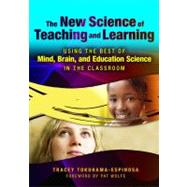
| Foreword | p. xi |
| Preface | p. xiii |
| Acknowledgments | p. xvii |
| Introduction | p. 1 |
| Why Mind, Brain, and Education Science Is Better Than "Brain-Based Learnin" | p. 2 |
| My Accompanying Biases | p. 4 |
| What This Book Will Offer | p. 4 |
| The Scientifically Substantiated Art of Teaching | |
| The Case for Neuroscience in the Art of Teaching | p. 9 |
| Why Psychology + Neuroscience + Education = MBE Science | p. 10 |
| It Is Not Enough to Know How We Learn, We Must Know How to Teach | p. 11 |
| Establishing MBE Science | p. 12 |
| Why Teaching and Learning Have Changed and What Teachers Need to Know | p. 13 |
| Arguments for and Against Uniting Education, Psychology, and Neuroscience | p. 14 |
| The Basic Premise of MBE Science: Teaching and Diagnosing learning Problems Is Not Easy | p. 16 |
| Three Theoretical and Conceptual Views in MBE Science-Bringing the Perspectives Together | p. 16 |
| The MBE Science Saga | p. 19 |
| Using What We Know as Fact | p. 23 |
| Truths and Neuromyths in MBE Science | p. 24 |
| What Is Well-Established | p. 27 |
| Considering What to Do with What Is Probably True | p. 34 |
| Emotions and Their Impact on Teaching and Learning | p. 34 |
| The Learning Organism | p. 39 |
| Spcies-Related Processes | p. 41 |
| Education and Teaching Processes | p. 47 |
| The Backbone of Scientifically Based Teaching | p. 52 |
| Evaluating the Usage of What Is Still Just Intelligent Speculation | p. 53 |
| Existing Mental Structures | p. 54 |
| Classroom Experiences | p. 59 |
| Modes of Learning | p. 63 |
| Activities, Environments, and Enrichment | p. 67 |
| Physical Versus Functional Workings of the Brain | p. 71 |
| Different Populations | p. 74 |
| Weeding Out Neuromyths and Misunderstandings | p. 77 |
| Myths About and Misinterpretations of Data | p. 77 |
| Misunderstandings About How the Brain Works | p. 79 |
| Myths About Memory and Learning | p. 80 |
| Myths About Brain Processes | p. 81 |
| Folk Myths About the Brain | p. 82 |
| Unsubstantiated Beliefs | p. 84 |
| Myths About Where Learning Takes Place | p. 84 |
| Keeping the Data Honest | p. 85 |
| Appling Mind, Brain, Education Science in the Classroom | |
| Tenets: Applying Knowledge About the Individual Nature of Learning to Classroom Teaching | p. 89 |
| Emotions and Learning | p. 90 |
| The Physical Body and the Learning Brain | p. 94 |
| Individual Approaches to Learning | p. 96 |
| Summary of the Tenets | p. 98 |
| Principles: Applying Universal Concepts About the Brain and Learning to Classroom Teaching | p. 99 |
| Core Beliefs | p. 99 |
| Survival Skills of the Brain | p. 104 |
| Attention and Social Cognition | p. 106 |
| Memory and Learning Processes | p. 109 |
| The Mind Versus the Brain in the Teaching and Learning Process | p. 112 |
| Summary of the Principles | p. 113 |
| Ten Instructional Guidelines in MBE Science | p. 114 |
| Environments | p. 114 |
| Sense, Meaning, and Transfer | p. 116 |
| Different Types of Memory Pathways | p. 117 |
| Attention Spans | p. 118 |
| The Social Nature of Learning | p. 119 |
| The Mind-Body Connection | p. 120 |
| Orchestration and "Midwifing" | p. 121 |
| Active Processes | p. 122 |
| Metacognition and Self-Reflection | p. 122 |
| Learning Throughout the Life Span | p. 123 |
| Summary of the Instructional Guidelines | p. 124 |
| How Do We Distinguish Good Information from Bad in MBE Science? | p. 125 |
| Characteristics of a Critical Thinker | p. 126 |
| The Critical Thinking Process | p. 128 |
| The Role of Reflective Skepticism in Critical Thinking | p. 130 |
| The Stages of Critical Thinking | p. 131 |
| Tools to Judge the Information | p. 132 |
| Summary of the Tools | p. 133 |
| Improving the Field and Moving Forward | p. 135 |
| What Can You Do? | p. 135 |
| Next Steps in the Future of MBE Science | p. 137 |
| Future Development | p. 139 |
| Final Thoughts | p. 140 |
| Glossar | p. 143 |
| Members of the Delphi Panel and Expert Reviewers | p. 151 |
| Exemplary Works in the Field | p. 153 |
| References | p. 167 |
| Index | p. 181 |
| About the Author | p. 190 |
| Table of Contents provided by Ingram. All Rights Reserved. |
The New copy of this book will include any supplemental materials advertised. Please check the title of the book to determine if it should include any access cards, study guides, lab manuals, CDs, etc.
The Used, Rental and eBook copies of this book are not guaranteed to include any supplemental materials. Typically, only the book itself is included. This is true even if the title states it includes any access cards, study guides, lab manuals, CDs, etc.